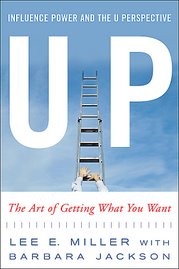
Does Hillary Clinton's recent teary-eyed performance in New Hampshire send the wrong message to working women: that it's acceptable to cry at work?
For years, women have been told to avoid displays of emotion at the office for fear of looking weak. While crying in the workplace may be equally damaging to a man's rise in the business world, the issue is of greater importance to women because "women cry four times as often as men do," according to William Frey II, a biochemist doing research at the St. Paul-Ramsey Medical Center and author of "Crying: The Mystery of Tears" (Winston PR, 1985).
The disparity in frequency arises not just because boys are conditioned while growing up not to cry, but also as a result of physical differences between men and women, Frey says. The "tear glands of men and women develop differently, resulting in a greater propensity for women to shed tears."
I asked several workplace experts if the Clinton episode made it acceptable to cry at work. The response was an unequivocal "No." Here is a sampling of the responses I received:
While turning on the tears may momentarily help you out of a difficult situation, it can have detrimental long-term consequences, as Christie Whitman, a personal empowerment coach in Philadelphia, learned when she was employed at Pepsi. (Whitman is no relation to the former New Jersey governor.)
Whitman said she worked for a difficult boss who assigned her near-impossible tasks and belittled her when she made even the smallest mistakes. One day, she "couldn't take it any more," and started to cry. Her boss immediately backed off and ceased being so tough on her.
His changed behavior, however, came at a heavy price. She said he shared the incident with her male co-workers, who, from that day forward, demeaned her and constantly made jokes about her crying. She wasn't able to overcome the loss of credibility until a new manager took over and dealt with the situation.
Crying continues to be viewed by most managers as a sign of weakness and lack of self-control. Although research suggests the only way to prevent crying on the job is through conditioning yourself not to do so over a long period of time, you can reduce the emotional triggers creating the urge to cry.
If you expect a situation is likely to become emotional and are prepared to respond, you are less likely to react emotionally. You can also reduce the likelihood of shedding tears by changing the topic, thinking about something else or by distancing yourself from your feelings. If you can't stop yourself from crying, though, don't do it in front of anyone. Don't just leave the room; leave the building.
Although much has changed in the workplace, crying continues to be a career-limiting move that has the potential to damage future prospects. To paraphrase the baseball coach portrayed by Tom Hanks in "A League of Their Own:" "There is no crying in business."
For those hoping Clinton's crying in New Hampshire had ushered in a new era of authentic leadership, where women are freer to show emotions at work, consider this: Her behavior, Frey says, was "typical of how a man, conditioned to hide his emotions, would react. Rather than tears running down her cheeks, Clinton's eyes moistened, her voice choked up and then she quickly regained her composure and got back to business."
A veteran human resources executive, Lee E. Miller is the author of "UP: Influence Power and the U Perspective -- The Art of Getting What You Want," and the co-founder of YourCareerDoctors.com, a Web site devoted to career success. Mail questions to Lee@
YourCareerDoctors.com.


No comments:
Post a Comment